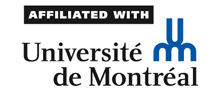By Jean-François Daoust, University of Montreal
What is the story?
Despite the fact that the Quebec mass media often refer to strategic voting in their coverage of provincial elections, there is, to date, no research on that topic that specifically focuses on Quebec provincial elections. In a recently accepted article, I filled this gap in analyzing the 2012 Quebec provincial election survey of the Making Electoral Democracy Work project. First, I examined the extent to which voters engage in strategic behaviour; second, I analyzed the individual factors that influence their proclivity to cast a strategic vote.
How many strategic voters?
I followed a classic approach. In a first step I identified the survey respondents that could have potentially casted a strategic vote, that is, those whose preferred party was not one of the top two contenders in their district. These respondents had incentives to desert their preferred party and to cast a vote for one of the two viable parties in order to increase their chances to affect the final electoral outcome. 34% of respondents were potential strategic voters.
Then, I calculated the proportion of potential strategic voters that deserted their preferred party and voted for another one. They were 18%. Finally, I checked the proportion of those deserters that voted for their preferred party between the top two contenders in the district. These were strategic voters and they represented 8% of the whole sample. Table 1 shows, step-by-step, how I ended up having 8% of strategic voters.
| Potential strategic voters | Proportion of deserting potential strategic voters | Proportion of strategic voters |
| 34% | 17.8% | 8.4% |
The determinants of strategic voting
To answer the second research question, I looked at the determinants of strategic voting. Table 2 reports the results of a logistic model predicting the probability of casting a strategic vote. I found that partisanship and the intensity of party preference have a strong negative effect on the proclivity of casting a strategic vote. However, contrary to what I expected, sophisticated voters do not seem to act more strategically than the less sophisticated
| Standardized coefficient (std. error) | |
| Political sophistication | -0.37 (1.16) |
| Party preference’s intensity | -3.30** (1.25) |
| Partisanship | -0.72* (0.41) |
| Constant | -2.27** (0.99) |
| Pseudo R2 | 0.06 |
| N | 425 |
Conclusion
My article is the first academic research on strategic voting in a provincial election in Canada. I provided a first systematic account of this behaviour in Quebec.
For further details, see Jean-François Daoust. Forthcoming. Vote stratégique au Québec: Analyse de l’élection de 2012. Politique et sociétés.
